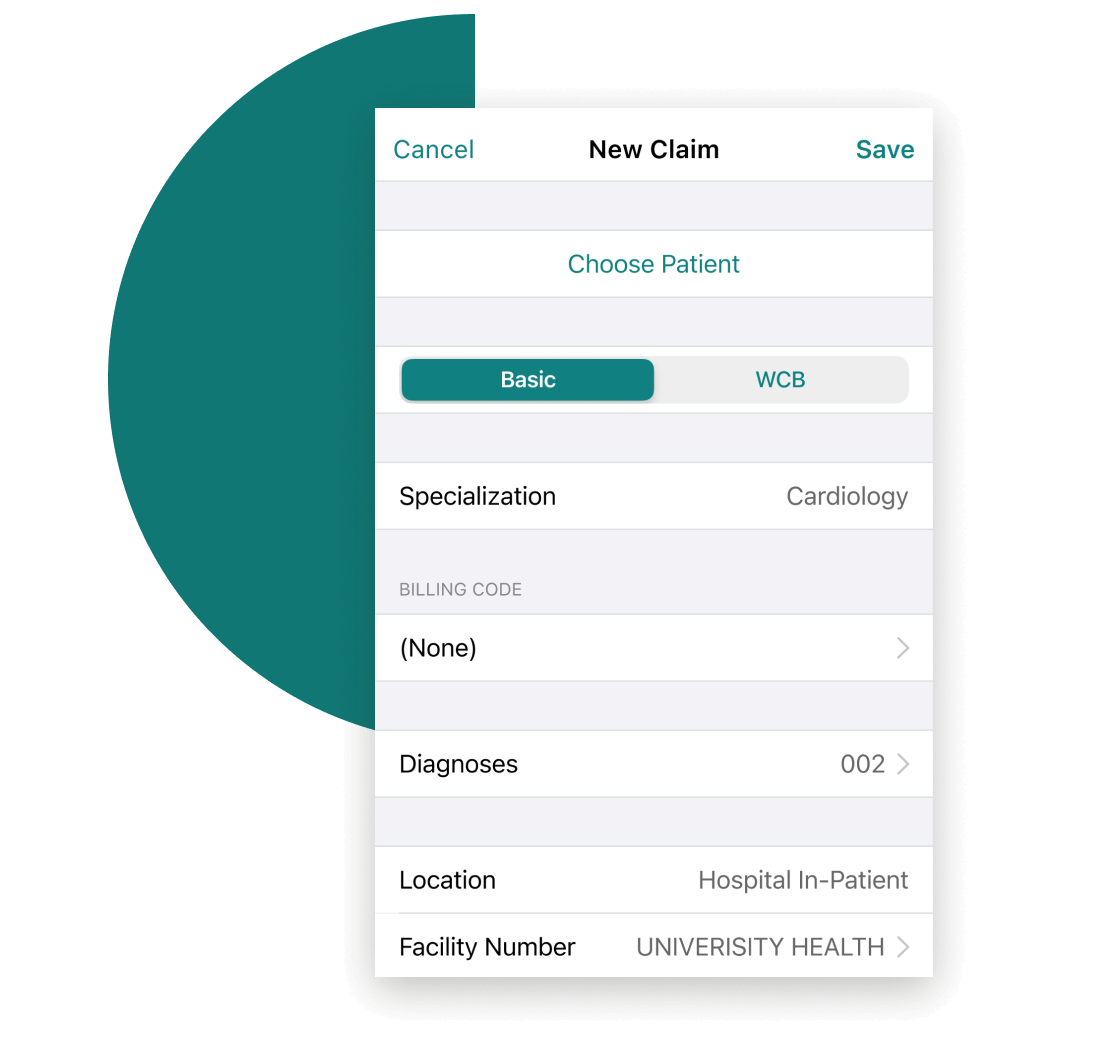Writing a physician resume is a difficult task, as practicing medicine means your resume could extend a number of pages. You might find yourself asking ‘What should I include? What format should I follow? How do I make it stand out?” Etc., etc.
Fortunately, as a doctor in Canada, you’re in demand, so much so that many times recruiters don’t even ask for, or thoroughly go over, your resume. We spoke to several Canadian recruiters and everyone agreed that there’s no shortage of jobs.
In fact, there’s such a high demand for both locum work and permanent practice that focusing too much time on your resume is sometimes unnecessary. That being said, it doesn’t hurt to be a little prepared.
If you want to spruce up your resume and make it stand out, then there are 3 things you should do, all listed below. By implementing each one you’ll create the perfect physician resume that highlights your accomplishments and easily shows recruiters what you bring to the table.
1. Follow a Physician Resume Template
Whether you’re going to be editing your current resume, or starting from scratch, it’s best to choose a template that’s going to outline all your qualifications and accomplishments in an easy-to-read format. Here’s some tips for writing/outlining your resume:
The Outline:
If you’re creating a new physician resume then a great way is to just go into Microsoft Word and use a free resume template. These templates are simple and easy to edit. Just adjust the headings so they reflect the following format:
- Name and contact information
- Career Objective (touches on your specialty, skills, and goals. How to write it is outlined in step #2).
- Post-Graduate Medical Education
- Education
- Certification
- Tip: Lead with your education and professional qualifications, exams and certification. Recruiters look for these elements first when reviewing potential applicants.
- Practice Experience (or Internships/Clinics/Residencies/Fellowships)
(Name of Practice/Hospital, Location, Title, Type of Practice, Brief Description). - Professional Associations and Memberships
- Awards and Honours
- Research/Publications/Presentations
- Language Skills
- References (either include 2-3 or state ‘references upon request.’
Remember to:
- Use bullet points,
- Try not to extend past 2-3 pages,
- Make sure the format and font all match.
Use Action Words:
Try staying away from long sentences and speaking with the pronoun ‘I.” Instead of speaking in the first person just eliminate the pronoun and use action words to get across your accomplishments by describing your experiences. For example, for a current position on a resume, “I treated chronic disease patients on an on-going basis.” instead it would just be “treated chronic disease patients on an on-going basis.”
Some action word examples:
- Taught
- Taught
- Diagnosed
- Researched
- Developed
- Trained
- Analyzed
- Treated
2. Write a Clear Career Objective for your Physician Resume
The career objective is where you describe what you’re looking for or your professional goals. It’s typically 1-2 sentences long and is at the top of your resume, underneath your name. It’s one of the most important sections of your resume since it’s the first thing recruiters read and, if done well, can prompt them to continue reading.
While the career objective should be tailored to each position you apply for (more on that in step #3), it’s still a good idea to create a general one that you can then quickly tweak later on, depending on the job post.
Here are some examples of great career objectives that easily highlight attributes:
- Fully licensed medical practitioner in internal medicine with 3 years experience seeking permanent work in a team environment with ample learning opportunities.
- To join a team of medical professionals at _(name of practice)_ and work closely with patients while bringing broad experience providing care as a general physician.
- Qualified anesthesiologist with 7 years of experience looking to work in a patient focused surgical environment.
- Seeking locum work in a busy clinic. Bringing a positive attitude with 10 years experience in diagnosing and treating general ailments and injuries.
- Qualified Optometrist seeking a unique opportunity to work in a team and provide patients with incredible eye care services.
- Passionate and reliable locum looking for clinical work.
Career objectives are very useful to quickly highlight your experience and your goals. Don’t spend too much time on this, remember you’re just writing a generic version that you can tweak later on.
3. Analyzing & Targeting your Physician Resume
Now that you have your resume outlined and ready to go – how do you make it the perfect physician resume so that it really stands out? By analyzing the jobs you’re applying for and using the same keywords they use in the job listing on your resume.
This means you’re going to have to slightly tweak your resume each time you apply for a job. Wh
ile this might sound time-consuming, remember that you already have your resume template, so it’s more just a matter of finding keywords in the job listing that you can highlight or address somewhere on your resume (of course, only if you have those qualifications).
Here’s some simple steps you can take to analyze and target your physician resume:
- Before you go job hunting, take the time to think about what you really want. You can do this by writing down all the qualities of your ideal job. For example:
- How many patients do you want to see weekly
- Where do you want to work (hospital, clinic, etc.)
- How many hours a week
- In a small, large, or big organization?
- Are you willing to Locum?
The more details you can add, the better. While this might change over time, the idea is that you use this list throughout the application process and don’t waste time applying for something you don’t want. Additionally, you can write 1-5 next to each item, 1 indicating it’s non-negotiable or 5 meaning it’s negotiable.
Having your ideal list will help you analyze different jobs and quickly decide if the job is worth applying for.
- Try finding 5-15 job posts that meet your list criteria. Then go back through each one and highlight or jot down the keywords used in the job listing. Once you have a list of skill sets, go back through your resume and adjust your resume to reflect/emphasize those skills (it goes without saying that you are only going to add the keywords if you really do have those qualifications/attributions).
Here’s a quick example of how you might adjust your career objectives specifically for a job.
Career Objective Before: Seeking a full-time or locum anesthesiology position in Ontario.
The Job Listing: Looking for a dedicated and hardworking doctor to work in our clinic permanently. As part of our team, you will enjoy a challenging and rewarding career with outstanding clinical and academic opportunities. We’re looking for a self-starter who wants to start or grow a practice (Toronto, Ontario).
After: Dedicated and hardworking anesthesiologist seeking a permanent position in a team environment with clinical and academic opportunities in the Toronto area.
In general, when you’re tweaking your resume, try to get into the habit of asking yourself, what have I done or studied that would make this useful to this employer based on the information they’re sharing? Then, highlight that at the top of your application.
Physician Resume Sample
If you’re looking for a physician resume sample,
Healthforce Ontario has some great suggestions for specialists, family medicine and new grads. They are short and simply outline your qualifications.
Physician Resume Sample
Applying Tips: Batching
This next tip comes directly from The Bagg Group, a Toronto-based agency (but it applies nationwide) that suggests breaking down your job hunt by separating different tasks into batches of the same activity.
Here’s what that might look like:
Monday: Find job postings to apply to. Remember to reflect on your ideal list and save links to jobs you really think you might enjoy.
Tuesday: Spend a block of time going through all the job postings you found to weed out ones that aren’t actually a good fit.
Wednesday: Tweak your resume, this is customizing day. Use the tips we mentioned above and go through and tweak your resume so it uses the same keywords as the job posting and highlights the qualifications they are looking for that you have.
Thursday: Restart the process.
Using the “batching” method helps improve focus and productivity by completing one task at a time instead of multitasking. A great way to treat your job hunt is to treat it as a job. Organize your days and limit the amount of time you spend looking for and applying to jobs so you stay motivated.
Where to Find Jobs
There are a ton of job boards, agencies and services that will help you with your job hunt, so many in fact, that it might be overwhelming or daunting. Try taking a look at the resources below and save links to the sites that you find the easiest to navigate.
It’s up to you if you’d prefer to use an agency, or apply directly. Just remember, only apply for jobs that you’re really interested in. Wherever you end up working is going to determine a lot about your overall progress, stress and work-life balance; so think twice before applying and a third time before accepting a job offer.
Here are some popular recruitment sites across Canada:
BC Recruitment Sites
Physician Jobs Interior Health
Ontario Recruitment Sites
Alberta Recruitment Sites
Alberta Doctors Job Board
Nation Wide
For Locums:
Do you have any physician resume tips or something that has worked well for you? Let us know on twitter!
This article offers general information only and is not intended as legal, financial or other professional advice. A professional advisor should be consulted regarding your specific situation. While information presented is believed to be factual and current, its accuracy is not guaranteed and it should not be regarded as a complete analysis of the subjects discussed. All expressions of opinion reflect the judgment of the author(s) as of the date of publication and are subject to change. No endorsement of any third parties or their advice, opinions, information, products or services is expressly given or implied by RBC Ventures Inc. or its affiliates.

Solutions Designed For The Unique Needs Of Your Practice
Get a $150 Credit when you sign up for Dr.Bill*. No credit card required.







